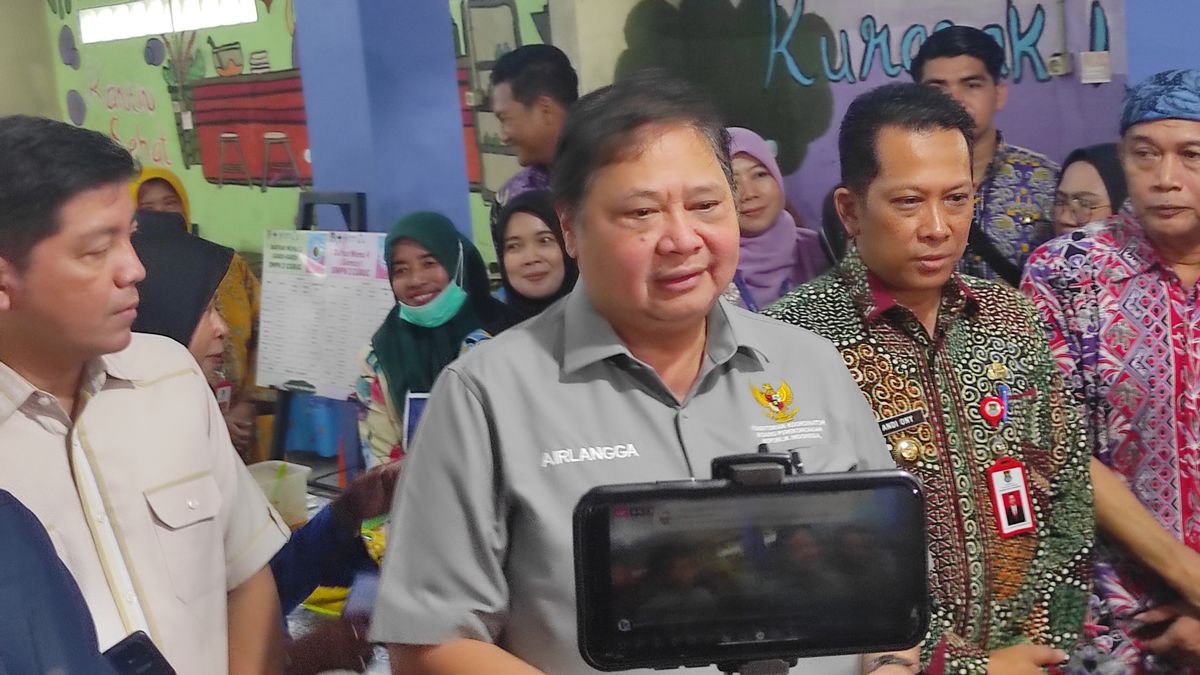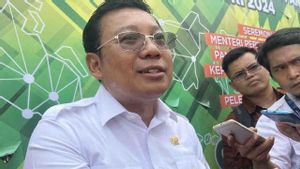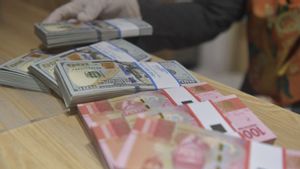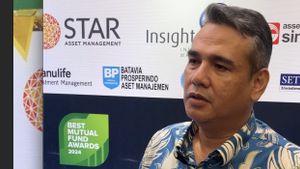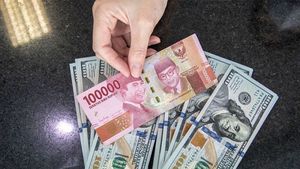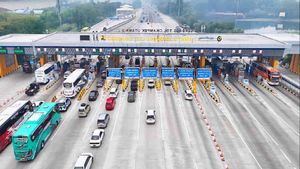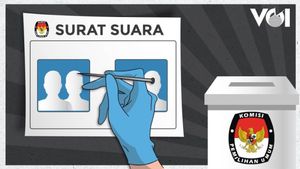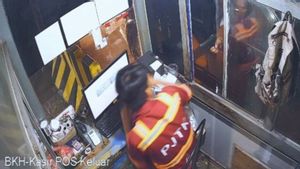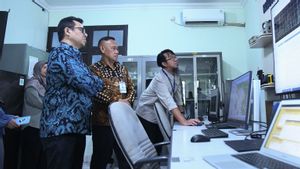Coordinating Minister for Economic Affairs, Airlangga Hartarto, said that there was a direct direction from President Joko Widodo (Jokowi) in today's General Election Result Dispute (PHPU) dispute hearing, Friday, April 5, 2024.
However, Airlangga did not explain in detail and specifically regarding what kind of direction President Jokowi had entrusted.
"The directive from the President is explained clearly," he said after the dispute over General Election Results (PHPU) or 2024 Presidential Election, Friday, April 5, 2024.
According to Airlangga, the directive given by Jokowi was to be able to explain the duties and functions of each of the four ministers who were summoned today in real and clear terms.
"The directives in particular do not exist, explain according to the duties of each and the functions of each minister," he said.
On the occasion of today's PHPU dispute hearing, Airlangga said there were several main reasons the government continued to distribute social assistance (bansos) during the 2024 election period some time ago.
Airlangga said the first reason was the decline in rice production due to the El Nino phenomenon.
"BMKG and several world climate centers predict El Nino will survive until the period December 2023, even January-February 2024. This will have an impact on reducing rice production," he said while giving a statement at the dispute over General Election Result Dispute (PHPU) or the 2024 Presidential Election, Friday, April 5, 2024.
Airlangga explained that the impact of the El Nino phenomenon also affected the decline in rice production in several countries so that a number of rice producing countries such as Thailand and Vietnam also experienced an increase in rice.
"Kita lihat produksi beras sampai bulan Juli Februari turun sebesar 5,88 juta ton, pada saat yang sama terjadi kenaikan harga beras dunia di mana Thailand itu 624 dolar As per ton atau naik 28 persen, dan beras Vietnam 614 dolar AS per ton, atau naiknya 41,95 persen," ujarnya.
According to Airlangga, when rice production fell and rice prices experienced an increase in various countries, various countries decided to limit rice imports to maintain domestic supplies such as India, Bangladesh, Russia, and Myanmar.
Furthermore, Airlangga said, the reason for the social assistance was still being distributed was due to inflation due to rising food prices.
According to him, this assistance is part of the mandate of the 1945 Constitution (UUD) article 34, where social assistance for poverty mitigation and the potential for economic slowdown.
"As much as 10.33 percent of rice contributed to inflation in March. From the various backgrounds above, social assistance is needed to maintain people's purchasing power and this is the constitutional mandate of Article 34 of the 1945 Constitution where social assistance is to fill and mitigate the increase in poverty, the potential for slowdown in economic growth," said Airlangga.
SEE ALSO:
Airlangga said the poor were very sensitive to the movement of food prices. "To protect the poor and vulnerable due to El Nino and disturbances in the global entrance chain, the government has implemented a strategy to maintain the availability of food supplies with food assistance and BLT," he added.
Airlangga said that social assistance is the government's effort to protect the community to deal with various pressures in maintaining life and livelihood.
"The government provides social protection to maintain the purchasing power of the affected people, especially the poor and therefore the government observed that in 2023-2024 the risk of El Nino which causes this increase in food prices could disrupt the livelihood of the poor and vulnerable," he concluded.
The English, Chinese, Japanese, Arabic, and French versions are automatically generated by the AI. So there may still be inaccuracies in translating, please always see Indonesian as our main language. (system supported by DigitalSiber.id)
